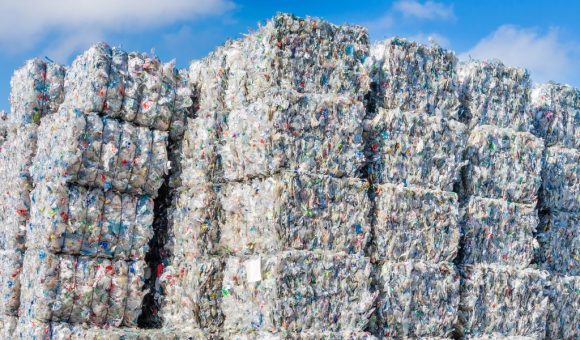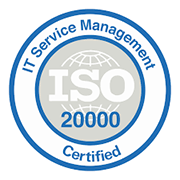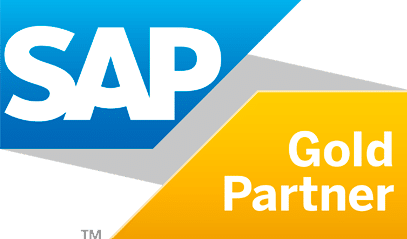The excise tax on non-reusable plastic containers has raised quite a few doubts since its application began on January 1, 2023. ¿Who pays the plastic taxWhich products are subject to this environmental tax? These are some of the frequently asked questions about the plastic tax and to which we are going to try to give an answer today.
Does the tax appear in the new plastic packaging law?
Actually, no. The Royal Decree 1055/2022, of December 27, 2002, on packaging and packaging waste regulates multiple issues related to the production and marketing of plastic packaging. But not precisely the one known as plastic tax.
However, the aforementioned plastics legislation details aspects that also seek to minimize the weight of this type of material in our economy, as well as to facilitate its recycling. For example, through targets for reducing the number of bottles marketed, prevention measures by encouraging bulk sales, improving waste management, or through of the new extended producer responsibility regime, whichwhich requires certain commitments from the latter.
So, where is the plastic tax included?
The plastic tax is included in the Law 7/2022 of April 8, 2002, on waste and contaminated soils for a circular economy.. The objective is none other than discouraging the production and consumption of plastics single-use plastic that does not come from recycled plastic in Spain. The goal: to reduce waste from this type of material as much as possible.
Spain is thus trying to to comply with the commitment acquired in environmental and sustainable development matters within the European Union.. It does so by adopting its packaging and waste directives, as well as the guidelines and targets set for circularity and revalorization.
Who is affected by the new plastic tax?
The regulation and, with it, the plastic tax, The entire value chain is involved. In other words, it is not only incumbent to manufacturers of accessories or plastic products, packaging or packaging packaging which are not designed to have several life cycles, but to organizations whose activity consists in their transformation or commercialization.
Therefore, who payswho pays the tax on plastic? It is paid by manufacturers, importing companies and intra-Community purchasers.
There are, however, sectors that are particularly affected by the new plastics tax.The company’s products, as we will see below. And it is that, certain packaging that is necessary to properly consume the which are necessary to properly consume the purchased product throughout its useful life, for example, the toner containing the ink in a printer, are not subject to tax.
The following are exempt from this tax: exempt from this tax are containers of medicines, sanitary products, food for infants or hospital use or hazardous waste of sanitary origin,food for infants or hospital use or hazardous waste of sanitary origin are exempt from this tax.
Examples of products subject to the new plastic tax
Products such as jars or bottles designed for single use are subject to taxation. Of course, plastic bags, freezer bags or vacuum bags. Also trays, blister packs, boxes and similar to protect food or the famous disposable tableware. These are all examples that we can easily intuit as products subject to the plastic tax. But there are many more:
- Applicators of cosmetic products.
- Catalog and magazine mailing bags
- Sandwich bags.
- Cable ties, clamps and clips.
- Capsules for beverage vending machines.
- Reels of sewing or fishing line.
- Single-dose containers.
- Candy wrappers.
- Films for screen protection.
- Pots intended to be used only for sale and transport.
- Packaging tape and film.
In the same way, we can cite examples of products that are not part of the taxable group. are not part of the group subject to taxation:
- Air fresheners that are eliminated with the product.
- Reusable food trays.
- Pens.
- Garbage bags.
- Roasting bags.
- Tea bags.
- CD, DVD and video cases.
- Coffee capsules that are disposed of with used coffee.
- Printer cartridges.
- Disposable cutlery (only in cases where it is attached to the container).
- Lighters.
- Mechanical mills.
- Garment hangers sold separately.
- Candle holders (as used in the cemetery).
The Tax Agency gathers more of these examples in its document Questions and answers on the excise tax on non-reusable plastic packaging to be applied as of March 1, 2023
How much is the plastic tax?
The tax base of the tax corresponds to the amount of amount of non-recycled plastic containing the product subject to the lien. This is expressed in kilograms. Thus, the applicable tax rate is 0.45 euros per kilogram of non-recycled plastic contained in each product. The regulation also provides for tax penalties for companies in violation.
When is this tax paid?
It depends on who must pay the tax:
- The manufacturing companies must pay the tax at the time of the first delivery or making available of the products in question.
- The importing companiesThe importing companies, at the moment in which the import duties are paid.
- For intra-Community acquisitionsFor intra-Community acquisitions, on the 15th day of the month following the beginning of the transport of the products.
Digital solutions for a sustainable economy
It is not easy to incorporate one more tax obligation into the day-to-day business. Not only because of the associated expense, but also because of the management costs. Even more so when we have to proceed to the correct calculation of the quota to be paid for each acquisition.
Fortunately, in i3s we have the right solution, a software tool that will help you not only to calculate and manage the payment of the new fee on time, but also to look for alternative solutions. for example, through the design of products and packaging suitable for a circular economy.
Do you want more information about our SAP solution for Plastic Tax Management? Contact our team. We will be happy to assist you.








